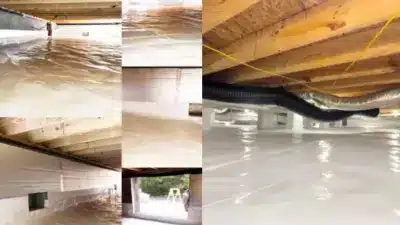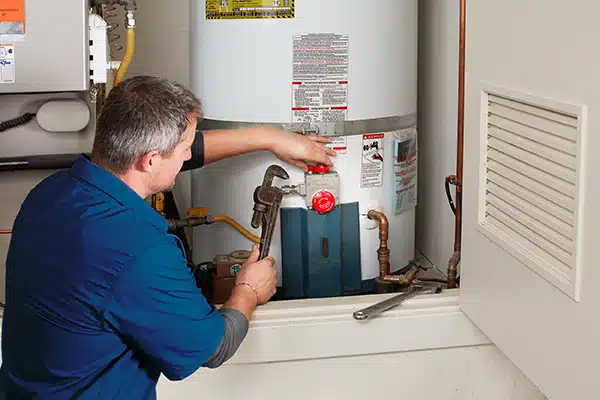
Key Takeaways
- Recognizing early warning signs can prevent unexpected breakdowns and expensive repairs.
- Issues such as inconsistent temperature, leaks, and rising bills indicate underlying problems with the hot-water system.
- Timely professional intervention prolongs your system’s lifespan and ensures household comfort.
Table of Contents
- Inconsistent Water Temperature
- Reduced Hot Water Supply
- Strange Noises from the Tank
- Discolored or Rusty Water
- Unpleasant Odors
- Leaks Around the Tank
- Rising Energy Bills
- Age of the System
- When to Call a Professional
- Conclusion
A reliable hot-water system is essential for daily comfort, from morning showers to household cleaning. However, like any appliance, it requires regular care and attention to perform efficiently. Subtle signs, such as fluctuating water temperature, unusual noises, or rusty-colored water, can indicate underlying issues that, if ignored, may lead to costly repairs or complete system failure. Recognizing these early warning signs helps homeowners address minor problems before they escalate into major inconveniences.
When your system shows signs of trouble, timely professional help can make all the difference. Services that offer 24/7 emergency water heater repair in Ogden ensure that homeowners aren’t left without hot water when it’s needed most. Experienced technicians can quickly diagnose and resolve issues, preventing further damage and restoring system performance. Prompt attention not only extends the life of your water heater but also helps maintain efficiency, safety, and comfort in your home year-round.
Inconsistent Water Temperature
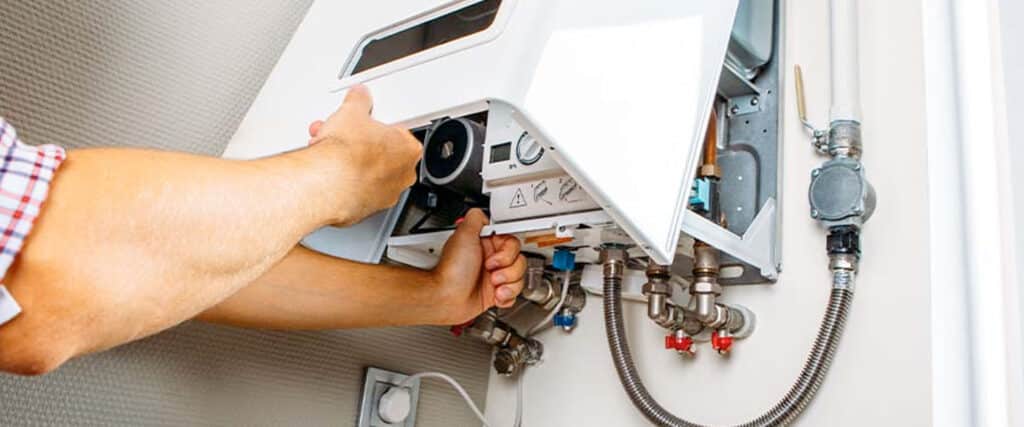
If your tap water abruptly shifts from freezing to scalding despite unchanged settings, you could be facing a malfunctioning thermostat or heavy sediment buildup. These interruptions prevent your system from maintaining a reliable temperature, forcing your household to deal with uncomfortable and sometimes unsafe water conditions.
Reduced Hot Water Supply
When your showers suddenly become shorter or you’re out of hot water more frequently, it often signals sediment accumulation in the tank. As minerals from your water supply settle, they reduce tank capacity, making the heater work harder. Consistent flushing and professional servicing help maintain your heater’s efficiency and supply.
Strange Noises from the Tank
Unusual banging, popping, or rumbling noises are strong indicators of underlying issues. Hardened sediment rattling at the tank’s base not only creates strange sounds but also causes internal stress, risking cracks and leaks if unchecked. If these sounds persist, scheduling a prompt inspection can help prevent catastrophic failure.
Discolored or Rusty Water
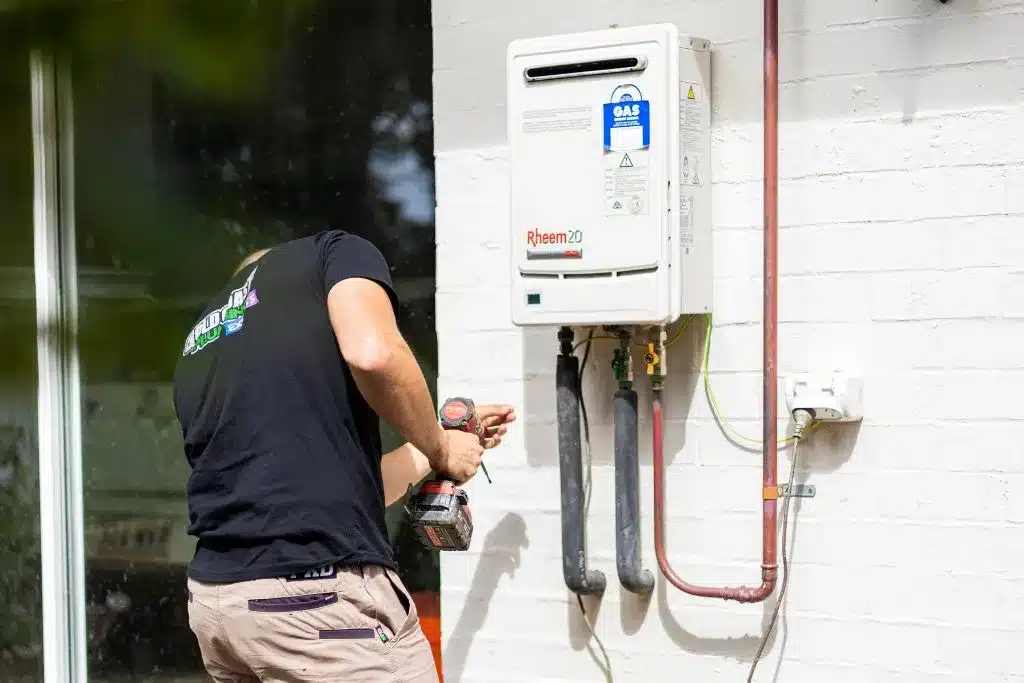
Rusty or brown water indicates corrosion within your hot-water tank, often caused by a deteriorating anode rod, which usually serves as protection against rust. If left unaddressed, corrosion may breach the tank wall and contaminate your water, resulting in both health and plumbing hazards.
Unpleasant Odors
Notice a burning metal or rotten egg smell from hot water? This distinct odor typically indicates bacterial growth in the tank, especially when the anode rods begin to deteriorate. Flushing out buildup and replacing affected components quickly is the most effective remedy.
Leaks Around the Tank
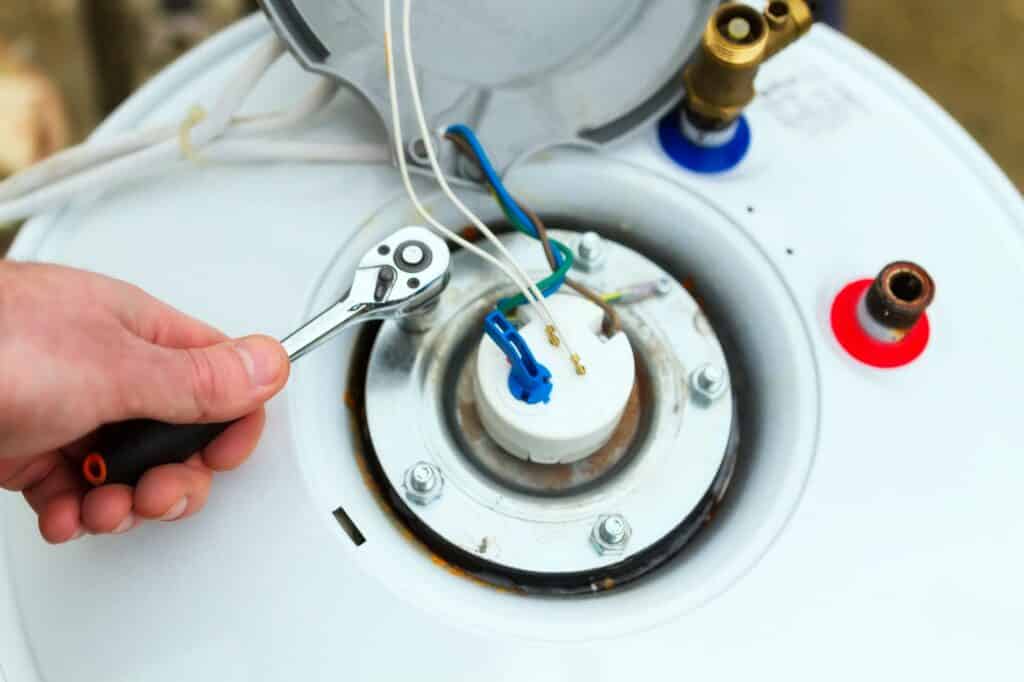
Water or moisture around the base of your hot-water system is a leading sign of trouble. Leaks often develop from corroded tanks, aging valves, or loose fittings. Immediate intervention not only prevents home water damage but can also reveal minor issues before they escalate into costly system replacements.
Rising Energy Bills
Unexpected jumps in your monthly energy bills can result from an inefficient or overworked hot-water system. Common causes include thick layers of sediment, damaged thermostats, or failing heating elements—all of which force your appliance to expend extra energy for the same performance. Keeping a close eye on your utility bills provides a valuable early detection tool for subtle system declines.
Age of the System
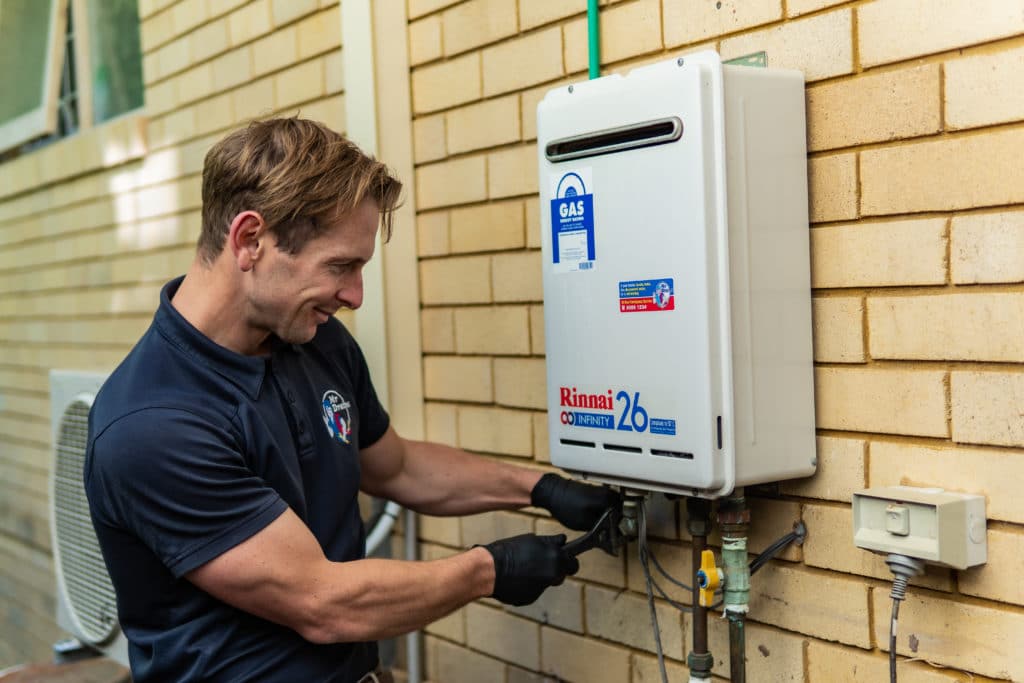
Most hot-water heaters have a functional lifespan of 8 to 12 years. If your unit nears this age—especially if it exhibits any of the above signs—replacement may soon be unavoidable. Investing in a modern, energy-efficient model now reduces the risk of surprises and optimizes long-term operating costs and comfort.
When to Call a Professional
While some hot-water system maintenance can be handled by homeowners, issues such as persistent leaks, unusual noises, and contaminated water require prompt expert attention. Licensed plumbers have the training and tools to diagnose, repair, or replace your heater with minimal disruption, keeping your home safe and efficient.
Conclusion
Staying alert to early warning signs provides the best chance to resolve hot-water system issues before a full breakdown occurs. Regular inspections, maintenance, and timely intervention ensure both comfort and reliability at home. If you experience any concerning symptoms, don’t wait—consult a qualified plumber as soon as possible to safeguard your household’s hot water and peace of mind.
- 0shares
- Facebook0
- Pinterest0
- Twitter0
- Reddit0


